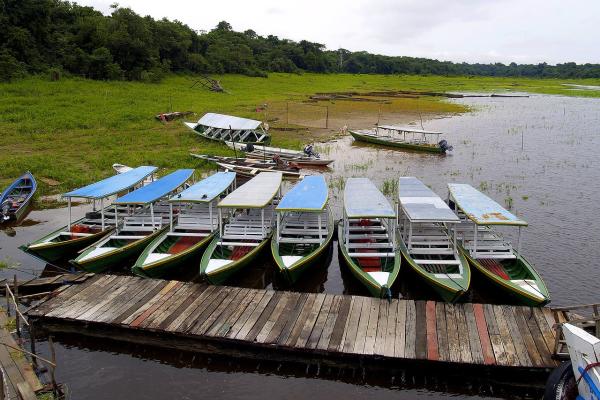Global Climate Policy Needs a Water-Centric Approach, Argues Scientist at Amazon Reserve

In the lush expanse of the Amazon, where water seems infinite, Dr. Marcia Nunes Macedo, a leading climate scientist, warns that the future of climate stability hinges not just on managing carbon emissions but requires a critical focus on water resources. Macedo, stationed at the Mamirauá Sustainable Development Reserve, emphasizes that the escalating climate crisis is as much about water as it is about carbon.
The Amazon faces severe threats from increasing droughts and floods due to global warming. Despite the abundance, Macedo cautions that the region is on the brink of a severe water crisis that could have devastating global implications.
Macedo's observations come ahead of the COP30 climate summit in 2025, set to convene in Belém do Pará, near the mouth of the Amazon River. This will be the first time world leaders will gather in an Amazonian city to discuss climate strategies, providing a unique perspective on the role of water in climate dynamics.
The Amazon, contributing one-fifth of the world's freshwater discharge to the Atlantic, illustrates the scale at which water impacts global climate patterns.
Recent catastrophic events underscore her concerns. In 2023, northern South America experienced below-normal rainfall due to El Niño, while southern Brazil faced unprecedented floods that displaced over 640,000 people. Macedo highlighted these events as clear indicators of the escalating water crisis, exacerbated by climate change.
Record-high temperatures and reduced river levels are leading to widespread ecological and economic damage in the Amazon, so the scientist advocates for urgent reevaluation of climate strategies.
As governments prepare for COP30, Macedo calls for integrated climate solutions that prioritize water management to ensure food security, mitigate fire risks, and enhance ecological and social resilience. The upcoming summit presents an opportunity for global leaders to adopt a more holistic approach to climate change, addressing both carbon and water crises to safeguard future generations.
Macedo's work at the Woodwell Climate Research Center and her extensive research in the Amazon provide critical insights into the dual threats of water and carbon crises, urging a balanced and immediate response to the intertwined challenges.
To learn more, visit "offsetting carbon alone won't hold water."
Related Stories:
- Severe droughts limit Amazonian communities’ access to basic services, Woodwell Climate Research Center, July 2024
- Severe droughts reduce river navigability and isolate communities in the Brazilian Amazon, Nature's Communications Earth & Environment, July 2024
